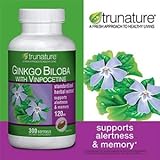Menopause in women is defined as the time when the menstrual periods cease. Based on this, men cannot have menopause. But, as the doctors have argued, they can undergo andropause which is now known as the male equivalent of menopause in women. Males who have andropause manifest the same symptoms as those women with menopause.
Male menopause (andropause) is used to refer to the condition in which men experience a reduction in their hormone levels. But unlike the case of women whose hormone levels drop dramatically, male menopause occurs with a gradual fall in hormone testosterone. Medical reports show that many men in their 70's have almost the same testosterone levels as those in their 20's.
Men with menopause manifest symptoms that include irritability, sweating, memory problems, concentration difficulties, and hot flushing. Other common complaints of men with menopause consist of low sex drive, hair loss, fatigue, generalized pains, and body shape changes as they tend to become more rounded and less brawny.
Analyzing the symptoms, it becomes clear why male menopause is compared with that of women. Women may manifest some or all of the symptoms listed.
It is important to note, however, that the symptoms listed may be caused by other physical illnesses other than menopause. Thyroid gland dysfunction, depression, or anemia may be the underlying roots.
Some doctors, however, claim that male menopause is caused not by the hormonal changes but by psychological reasons. The realisation that they are ageing is underlined by the signs of physical changes such as the occurrence of wrinkles, fat and waning hairline.
Men in their middle age usually weaken their self-esteem as they begin to question themselves as to whether they still have a role in their homes and the society. An example is when their children mature and leave home. They start to feel empty and futile in the family. This empty nest syndrome has been found to affect both genders in the same way, although women's symptoms tend to be more noticeable on the outside.
Other possible psychological triggers of menopause in men include financial problems, job dissatisfaction, and marital conflicts.
It is important to note, however, that the symptoms listed may be caused by other physical illnesses other than menopause. Again, thyroid gland dysfunction, depression, or anemia may be the underlying causes.
The diagnosis of male menopause or andropause is normally performed by running a physical examination, where the doctor will inquire about the symptoms the male is experiencing. The practitioner may conduct necessary diagnostic tests to discard other medical problems which may be affecting the condition. Series of blood tests will then be carried out to analyze the patient's hormone levels, as well as the blood testosterone status.
Testosterone replacement therapy is applied if the testosterone levels are found to be low. This process also helps to minimize the symptoms such as fatigue, depression, and low libido, or poor sex drive.
Hormone replacement therapy has as well been tied to the development in the brain functions, bone density and night sweats.
Testosterone replacement comes in oral medication, implants, or injections.The oral drugs are given to those who cannot bear implants or injections.
On the other hand, implants are placed in the lower hip or abdomen. This method provides cure that keeps going for up to six months.
The testosterone injections are typically given about once every two weeks.
If you are considering testosterone replacement therapy, it is important that you talk to a doctor to learn more about it. Your physician may also advise some changes in your lifestyle, such as an exercise program, proper diet, and medications to help alleviate the symptoms caused by male menopause.
Simply stated - Hormonal change - two words which can bring significant change to an individuals life. Once hormonal change is brought into discussion, most people would correlate it to women. These days however, women
are not the only ones who experience hormonal change. Studies have proven that many men experience many of these changes as well. These changes are now considered to be due to male menopause or as it is technically called, andropause.
BUY NOW | BUY NOW | BUY NOW |








